Wondering how to store fresh eggs? Whether they are freshly laid eggs or eggs from the farmer’s market, here are some of the most innovative and unique ways to keep eggs. Including step by step instructions, you will see just how to preserve eggs!
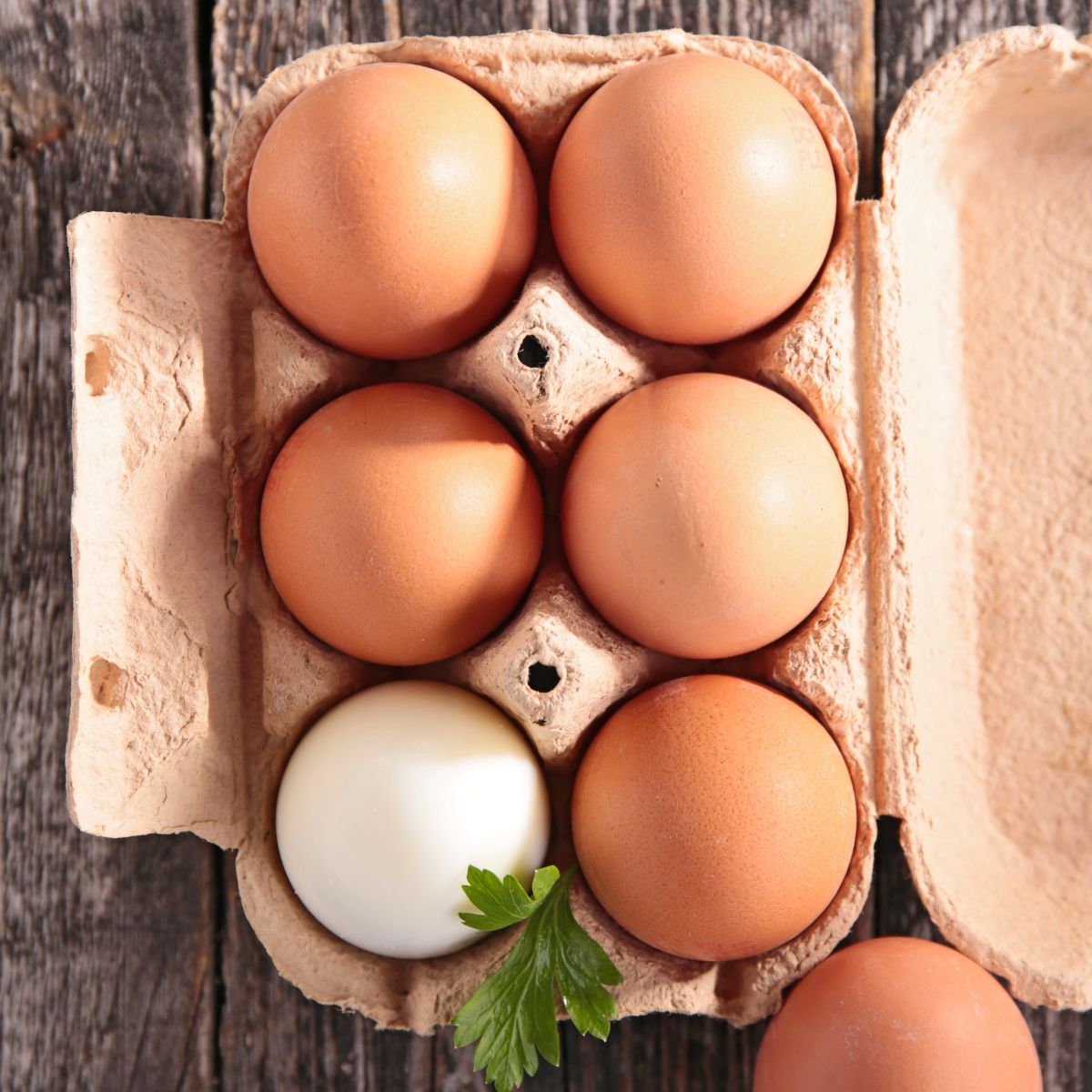
SAVE THIS RECIPE!
Enter your email below and we’ll send this recipe straight to your inbox.
Storing fresh eggs correctly is a key part of keeping them fresh and usable. Knowing the best way to store fresh eggs can help you keep them safe for longer and make sure that you are always able to enjoy their delicious taste. Whether it’s in your fridge, pantry, or even outdoors, there are a few important things to consider if you want to ensure your fresh eggs stay as fresh as possible. We will show you just how to store fresh eggs.
Healthline makes us aware that in the United States, it is absolutely necessary to refrigerate store bought eggs. Here is why it is important!
What Are Fresh Eggs
Fresh eggs are a staple in many kitchens across the world. They are a versatile and nutritious food that is so versatile for baking, frying, and more. Fresh eggs are an excellent source of protein, vitamins A and D, as well as minerals such as iron, zinc, and calcium. Not only this but they also contain omega-3 fatty acids which help to keep us healthy. When buying fresh eggs, it’s important to check the expiration date and make sure that they have not been sitting out at room temperature too long before purchasing them.
Farm fresh vs store bought eggs? The government requires that all store bought US eggs are stored in the fridge. This is because in the US fight against Salmonella, the US sanitizes their eggs which eliminates the extra layer that protects the eggs. While Farm fresh eggs do not have to store in the fridge the same way because they you do not wash them.
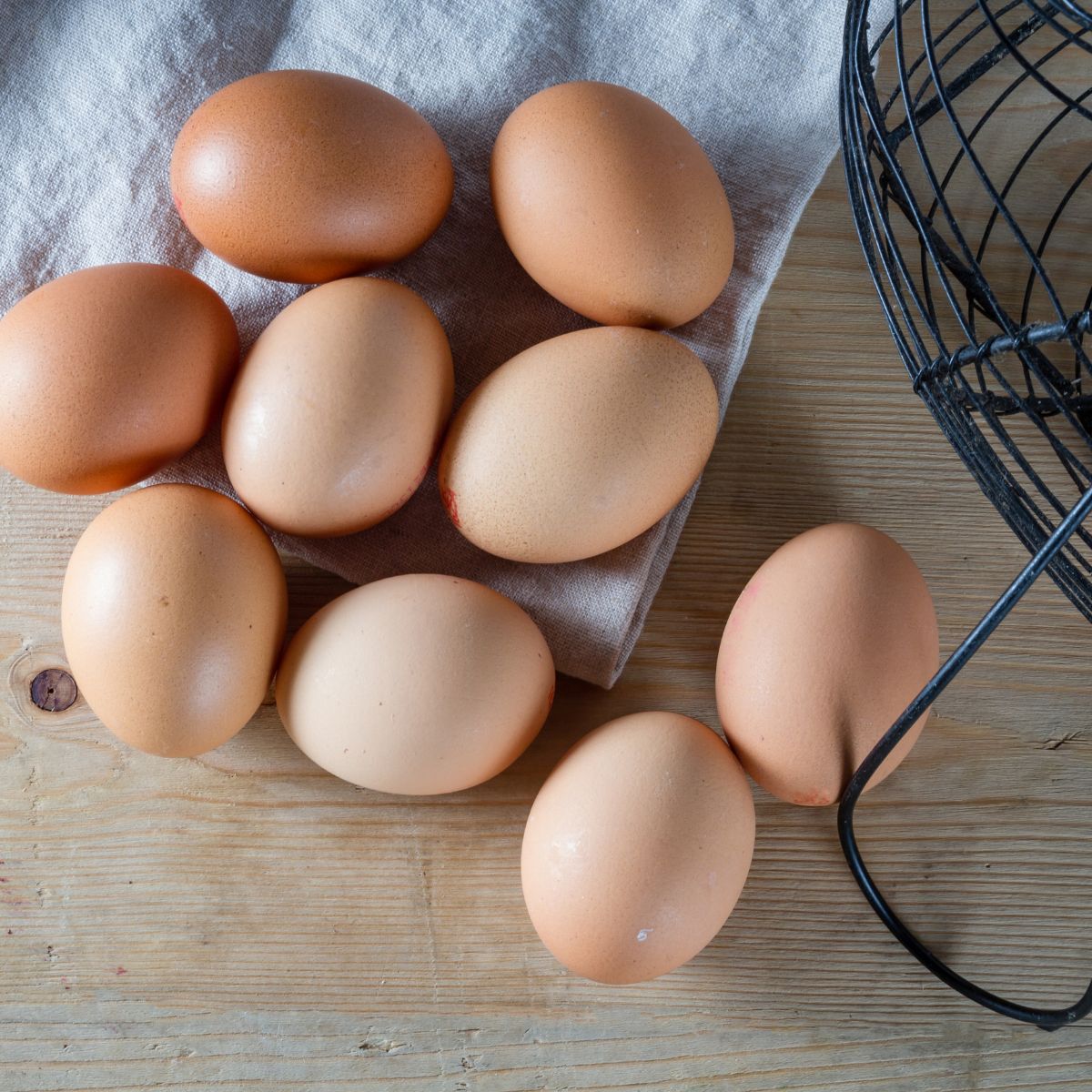
Types of Eggs
Eggs are a popular ingredient in many dishes and you can fix in so many ways. Whether you’re looking for a healthy breakfast or an easy snack, eggs are a versatile and nutritious food. There are several different types of eggs available, each with its own unique flavor and texture.
Soft-boil an egg until just set, leaving the yolk still soft and runny inside. Hard-boil eggs take longer, until both the white and yolk have solidified (check out this tutorial for perfect hard boiled eggs). To poach eggs is to cook without their shells, by gently dropping them into boiling water. Also try frying your eggs, they can be over-easy, over-medium or over-hard. Flipping the egg during cooking to cook both sides of the egg evenly while keeping the yolk intact.
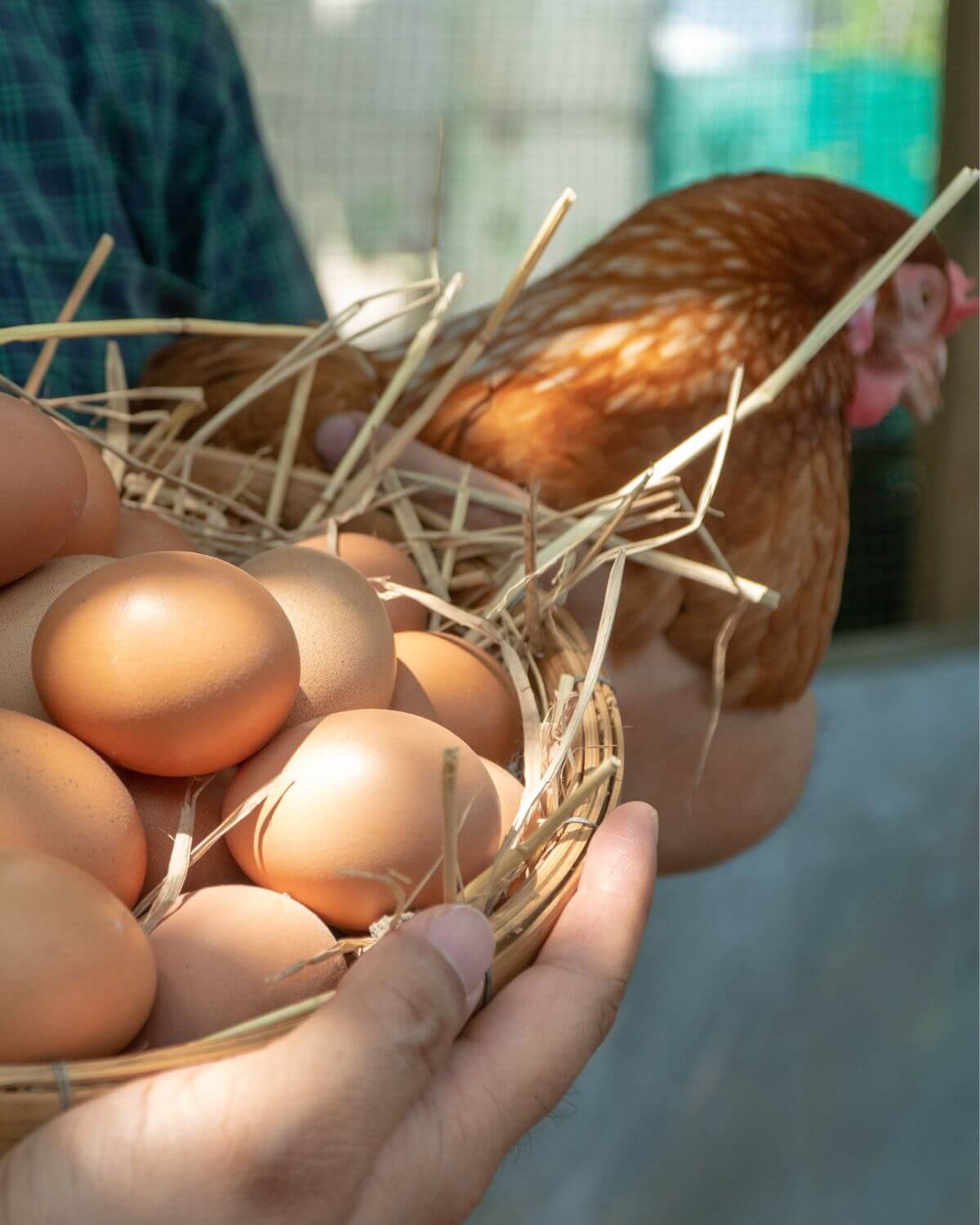
Benefits of Eggs
Eggs are an excellent source of important nutrients and provide numerous health benefits for people of all ages. They are a flexible food, but their nutritional value is also exceptional. From infants to senior citizens, consuming eggs can benefit physical well-being in many different ways.
For starters, eggs contain high amounts of protein and healthy fats, making them an ideal breakfast choice for those trying to lose weight or build muscle. The combination of protein and fat helps with satiety and provides energy throughout the day.
Additionally, eggs contain essential vitamins such as A, D, E and K plus minerals like zinc and iron which help support bone health. Furthermore, egg yolks are rich in choline – an important nutrient for brain development – making them a great choice for pregnant women and children alike.
How to Store Fresh Eggs
STEP 1: Collecting eggs from the coop
If you are purchasing the eggs from a farm or farmers market, feel free to skip this step!
Check the nest box daily every morning and every evening. During extreme temperatures, it is important to check multiples times a day to be sure that your eggs have not burst or froze.
Be sure to keep the nest box clean from mites and pests, this way your eggs will be much cleaner.
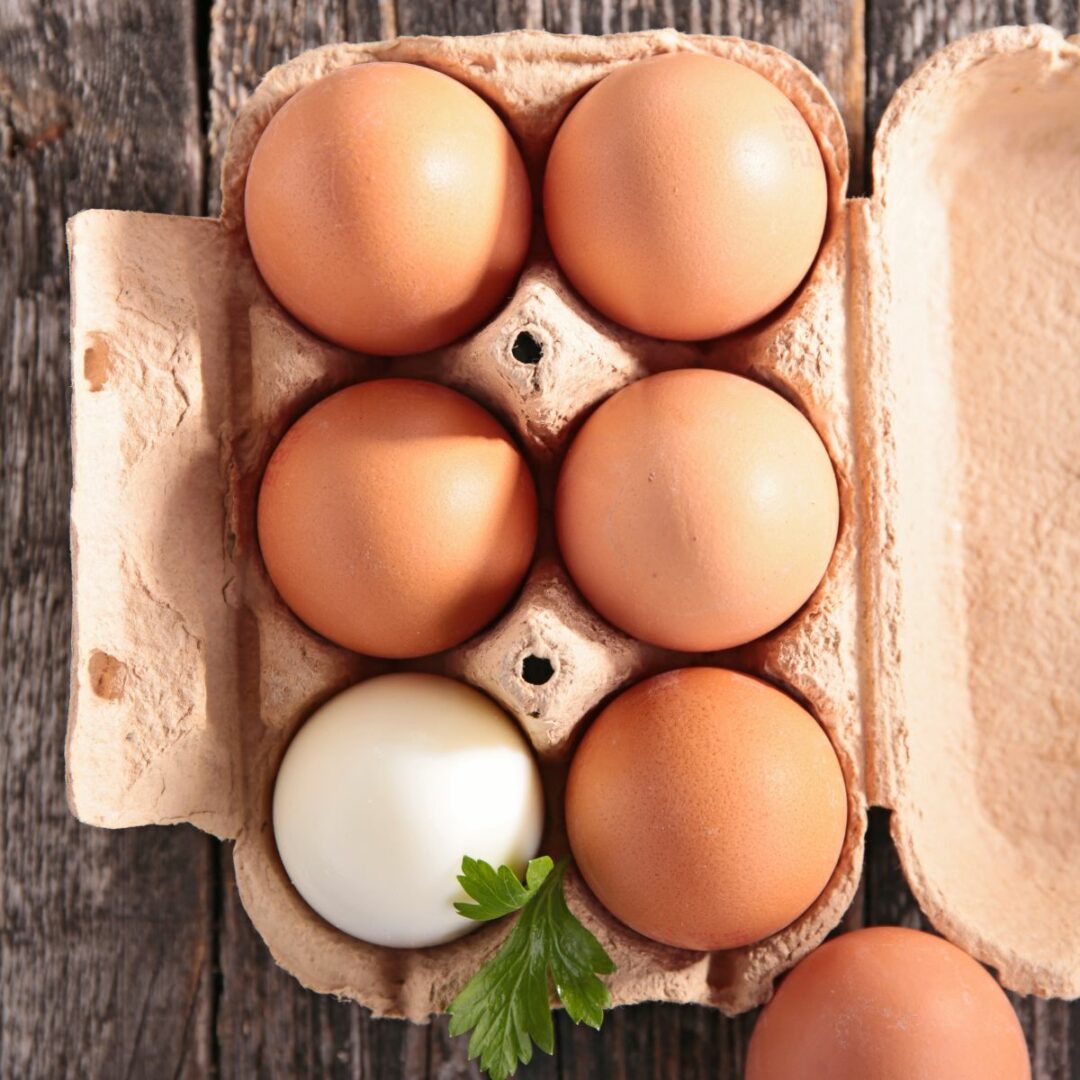
STEP 2: Place your eggs in a carton
Storing your eggs in a carton and keeping them in rotation is the best way to store fresh eggs.
Place your eggs in a carton and keep the oldest ones on top. This way, you won’t lose too many eggs from going bad due to old age.
Washing your eggs will cause your eggs to go bad faster.
STEP 3: Leave eggs in a cool place
Do you have to refrigerate fresh eggs? Fresh eggs do not need to be in the refrigerator. Store eggs in a carton in a cool area will keep your eggs preserved from six weeks to six months. Refrigerating your chicken eggs will make them last on the longer end.
You can refrigerate your eggs, but once you do so you cannot leave them out again because the condensation will cause the eggs to go bad.
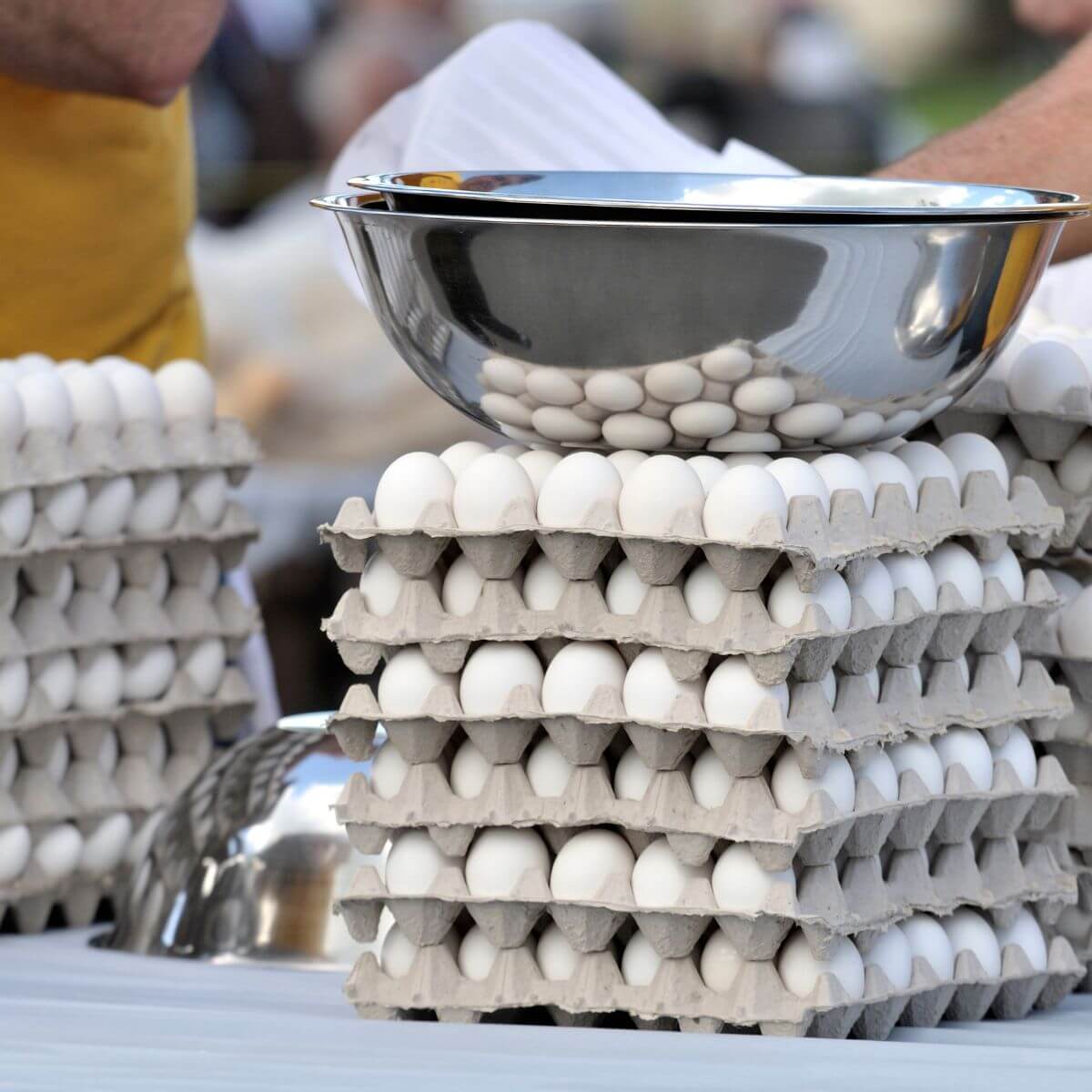
STEP 4: Preserving your eggs
One of the most effective ways of preserving eggs is to store your eggs in lime water.
Dissolve Pickling Lime in water. Once dissolved, submerge your eggs in the solution.
Because the lime coating seals the shell, your eggs will last over 12 months with this preservation method.
Frequently Asked Questions About How to Store Fresh Chicken Eggs
Inspect the shell: The shell should be clean and uncracked. If the shell is dirty or cracked, bacteria can enter the egg and spoil it more quickly.
Hold the egg up to the light: Hold the egg up to a light source to check for any visible defects, such as blood spots or meat spots. These are harmless but can be unappetizing.
Check the freshness: If you’re unsure about the freshness of an egg, you can perform a quick freshness test called the float test. Fill a bowl with water and gently place the egg in the bowl. If the egg sinks to the bottom and lays flat on its side, it’s fresh. If it stands up or floats to the top, it’s not as fresh and should be used soon.
It’s generally not recommended to wash fresh eggs unless they are visibly dirty or soiled from the chicken coop. This is because eggs have a natural protective coating called the bloom that helps prevent bacteria from entering the egg. Washing the egg can remove this protective coating, making the egg more susceptible to spoilage and contamination.
If you do need to clean your unwashed fresh eggs, here’s how to do it properly:
* Use warm water to wash eggs: Use water that’s slightly warmer than the egg to prevent the egg from contracting and drawing bacteria inside.
* Avoid soap or detergents: Soap and detergents can strip away the egg’s natural protective coating, so it’s best to avoid using them.
*
Gently scrub the egg: If the egg is visibly dirty, you can gently scrub it with a soft brush or cloth. Be careful not to apply too much pressure or the eggshell may crack.
* Dry the egg: Once you’ve cleaned the egg, dry it thoroughly with a clean towel or air dry it in a rack.
Fresh chicken eggs last quite a while and have a great shelf life. They can last anywhere from six weeks to six months as long as you keep the eggs stored properly. If you are unsure about the freshness of your eggs or whether they have gone bad, placing an egg in water will determine whether or not your egg is fresh.
If your egg sinks and lays flat on its side, it is fresh. If it floats or stands up, it is not recommended to be eaten. Always use the oldest eggs first.
Yes, eggs can be frozen for later use. However, it’s important to note that whole eggs should not be frozen in their shells because the liquid inside expands as it freezes and can cause the shell to crack.
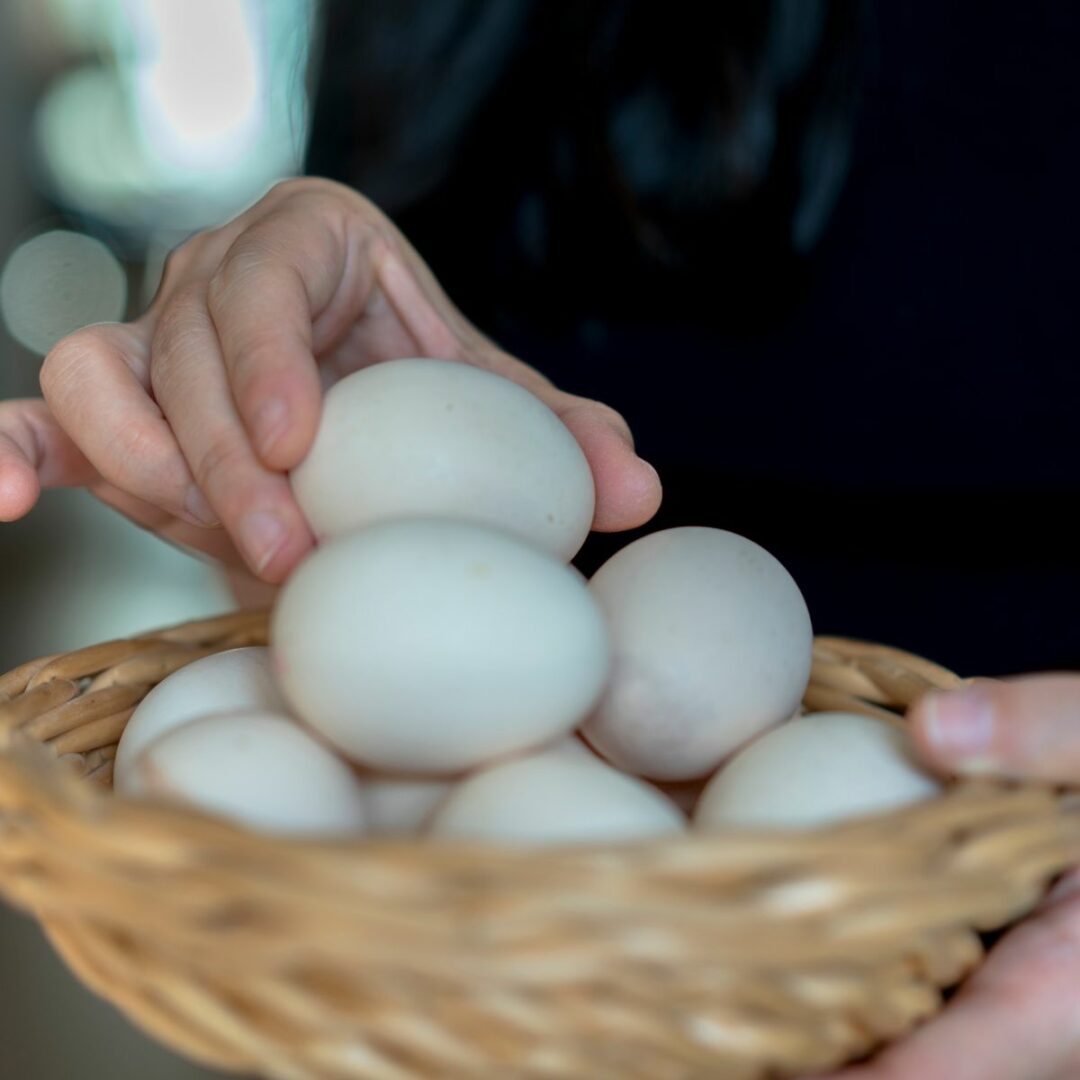
Expert Tips for Storing Fresh Eggs
- Place: Avoid storing your eggs in the refrigerator door. Temperature tends to fluctuate in the refrigerator door, causing the quality of the eggs to deteriorate.
- Wash : Don’t wash your eggs until you’re ready to use them. The longevity of your eggs will decrease as soon as you wash them.
- Storage: Keep your eggs away from strong smelling foods. Eggs can absorb odors from other foods, so it’s best to keep them away from strong-smelling items like onions, garlic, or fish.
- Freeze: Freeze your eggs. If you have a surplus of fresh eggs, you can freeze them for later use. To freeze eggs, crack them into a bowl and whisk them together. Pour the whisked eggs into a freezer-safe container and label with the date. When you’re ready to use them, thaw them in the refrigerator overnight.
Recommended Tools & Equipment:
- Refrigerator
- Egg Carton
- Freezer Safe Container





